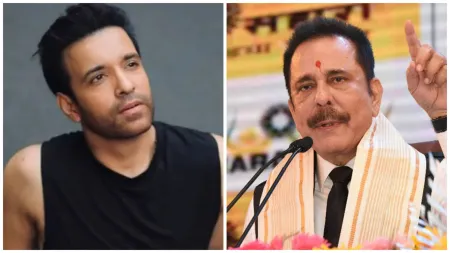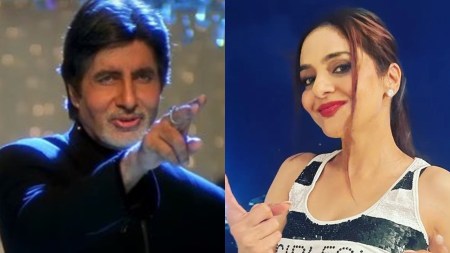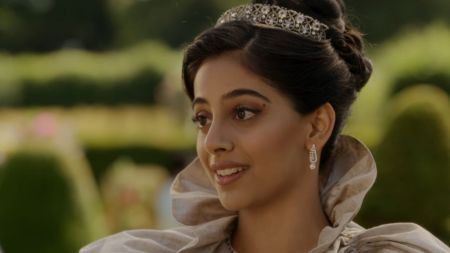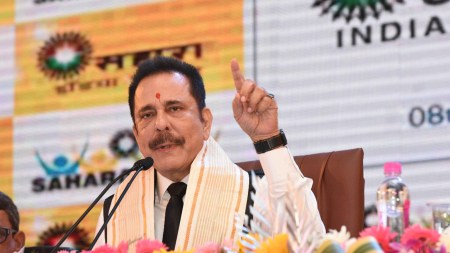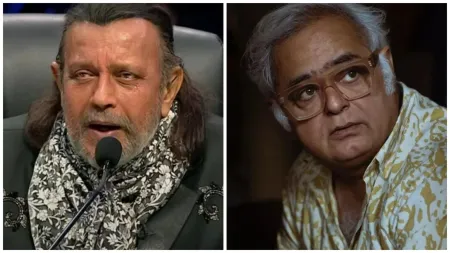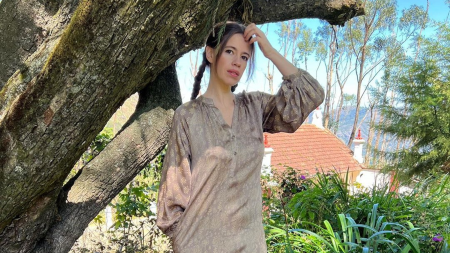Murder In Mahim, the novel by Jerry Pinto, has been adapted to a web series of the same name. Starring Ashutosh Rana as journalist Peter Fernandes and Vijay Raaz as police officer Shivajirao Jende, the crime series released on JioCinema on May 10. The series traces a murder mystery involving a police officer and a retired journalist, who uncover secrets of greed, despair, desire and homosexuality in India.
In a recent chat with indianexpress.com, Jerry Pinto opened up about the casting choices, his expectations from director Raj Acharya, series adaptation, homosexuality in India and more. “I was delighted by the casting. Because both Vijay Raj and Ashutosh Rana have the ability to suggest interior lives, which is very rare and wonderful in an actor. So I was on board with it,” Pinto said.

What inspired you to write this book?
When I started writing the book, the Supreme Court had decriminalized homosexuality and what were called, offences against the order of nature. I was very angry and I want to write a book about that. And I knew that if I wrote a book about like, let’s stop judging people on the basis of whom they want to love. I think most people still feel shame and this shame can be used against them, which needed to stop. So that’s why I wrote.
Were you happy with the casting choices? How did the team settle on Ashutosh Rana as a journalist and Vijay Raaz as a police officer?
I was delighted by their choices. I thought they were fine choices. And in a way, I was really, I felt like, you know, that they agreed to act in this. This was like a compliment to my book. So in no place have I ever felt, oh gosh, someone could have done it better. Because I think that’s the kind of thought that is useless. Because many people could, maybe someone could have done it better, but many people would have done it worse. Okay, and casting at the end of the day is who’s available, what the timeline is, what the person thinks about, whether the script speaks to them or not. There are a hundred things that must fall into place, that must line up before an actor signs on for a movie. And they lined up for two of our finest actors. So I’m really happy about that.
Were there any significant changes to the story or characters during the adaptation that surprised you?
I think when we are reading a book, all of us become film directors in a way. So I just like the idea of being surprised by what my book looks like or what Ika and Hindi look like when they pick up existence inside another person’s head. Nice thoughts.
The series talks volumes about sex workers and homosexuality in India. How can your series influence the audience’s perception of the issue?
You write hoping that people will see that beyond everything, we are really the same people — whether you’re gay or straight, whether you’re transgender or you’re cisgender, whether you’re upper caste or you’re not, whether you’re upper class or you’re not. All these, at the end of the day, we are the same person. So I’m hoping that you’ll just be able to see that there’s so much that unites a sex worker like Trophy or Unit and a middle-class retired journalist like Peter than divides them. But we tend to get hung up on the divisions rather than on the similarities. If Peter is ill tomorrow, Unit can give him blood. How much more intimate does it get? The takeaway is that every one of us is prone to the same set of emotions.
Disclaimer: The copyright of this article belongs to the original author. Reposting this article is solely for the purpose of information dissemination and does not constitute any investment advice. If there is any infringement, please contact us immediately. We will make corrections or deletions as necessary. Thank you.
